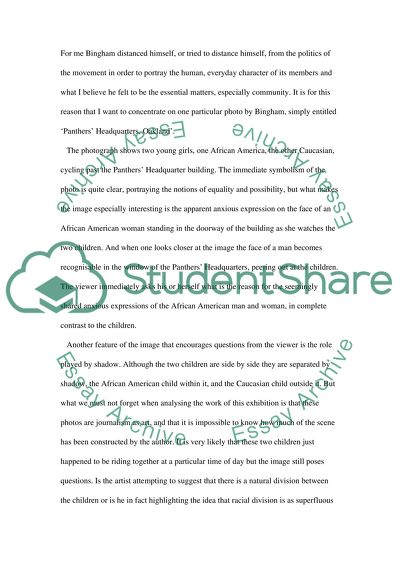Cite this document
(Binghams Black Panthers Assignment Example | Topics and Well Written Essays - 2000 words, n.d.)
Binghams Black Panthers Assignment Example | Topics and Well Written Essays - 2000 words. Retrieved from https://studentshare.org/visual-arts-film-studies/1509846-art-history-research-proposal
Binghams Black Panthers Assignment Example | Topics and Well Written Essays - 2000 words. Retrieved from https://studentshare.org/visual-arts-film-studies/1509846-art-history-research-proposal
(Binghams Black Panthers Assignment Example | Topics and Well Written Essays - 2000 Words)
Binghams Black Panthers Assignment Example | Topics and Well Written Essays - 2000 Words. https://studentshare.org/visual-arts-film-studies/1509846-art-history-research-proposal.
Binghams Black Panthers Assignment Example | Topics and Well Written Essays - 2000 Words. https://studentshare.org/visual-arts-film-studies/1509846-art-history-research-proposal.
“Binghams Black Panthers Assignment Example | Topics and Well Written Essays - 2000 Words”, n.d. https://studentshare.org/visual-arts-film-studies/1509846-art-history-research-proposal.


